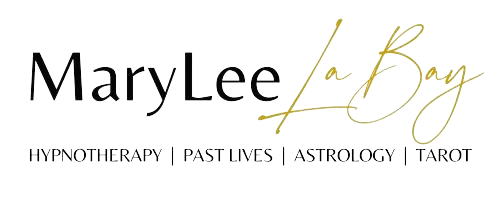Are you toying with the idea of starting a career in hypnotherapy? It’s an exciting and fulfilling career with the potential for unlimited growth. As you research this field, you’ll want to clearly understand what it means to be a hypnotherapist and then take steps to become certified in this line of work. After all, when clients choose hypnotherapy, they want to know they can trust the therapist sitting in front of them, and seeing proof of certification will set their minds at ease.
Yet, there are even more reasons to be certified. A well-rounded education will give you techniques to broaden your scope of practice, get better results, instill confidence, and help you build a successful practice. Further, you’ll qualify to join national organizations and obtain professional liability insurance.
If you’re ready to kick off a career that will transform people’s lives, then hypnotherapy is a direction that may align perfectly with your chosen path. In this post, you’ll learn how to earn your hypnotherapist certification.
What Does a Hypnotherapist Do?
A hypnotherapist employs various techniques to put their clients into a hypnotic state, which provides heightened concentration, focus, and access to perspectives, wisdom, and memories held in their subconscious minds. Client-centered hypnotherapists use specific techniques to facilitate self-discovery and awareness, improve behaviors and thought patterns, resolve addictions and unwanted habits, reduce pain and anxiety, instill confidence, and find purpose when clients are in hypnosis. I say “client-centered” because there is another way of doing hypnotherapy that involves the therapist simply reading pre-fabricated scripts and inserting suggestions rather than an exploration using dialogue.
Hypnotherapists help their clients with many of the following issues:
- Anxiety
- Grief
- Phobias and fears
- Eating disorders
- Self-sabotaging behaviors
- Substance abuse
- Addictions
- Bad habits
- Unwanted behaviors
- Weight loss
- Sleep problems
- Dealing with triggered emotions
- Communication skills
- Learning disorders
- Relationships
- Pain relief and trauma
- And with special training, facilitate past life regressions
You’ll facilitate sessions in person, via phone, or on Zoom. Any of those choices will deliver effective results. The essential factor is that your client is in a quiet and comfortable location where they can relax and focus without distractions or interruptions. Their comfort allows them to ease into a state of hypnosis quickly.
What is a Hypnotist vs. Hypnotherapy
As you seek out training to become certified, it’s essential to understand the difference between hypnosis and hypnotherapy. Although the terms are frequently interchanged, there is a difference.
Hypnosis is a trance-like state that allows for heightened levels of concentration. Both a hypnotist and a hypnotherapist are capable of inducing this state.
A hypnotherapist’s specialty is their ability to achieve a therapeutic outcome. They have the training and skills to create a positive result and help clients achieve their stated goals.
So basically, a hypnotist can put someone into a focused trance but may not offer any therapeutic benefits. Stage hypnosis is an excellent example of hypnosis used for entertainment. In contrast, using a similar hypnotic state, a hypnotherapist provides the added benefits of therapeutic growth and change during their session.
How to Become a Hypnotherapist
So, how exactly do you become a hypnotherapist? While there are a few steps to achieving your credentials and skillsets, it doesn’t have to be complicated.
Who Can Become a Hypnotherapist?
Having a background in psychology or therapy does help you to understand the psychological aspects of hypnotherapy. Still, it’s not required because, as hypnotherapists, we do not diagnose, analyze, or prescribe. Our work is to guide our clients to their realizations and choices.
With professional training, people can make a career transition from any previous walk of life to start a new holistic healing practice. Many people get certified with the plan to combine these skills with coaching or other holistic healing modalities they already practice, such as naturopathy, energy work, acupuncture, chiropractic, and the like.
If you are interested in consciousness, personality, and being of help to others, then hypnotherapy skills will be a clear asset to your career.
Hypnotherapist Qualifications
You don’t need a college degree to become a hypnotherapist. But, to have a successful career, it’s essential to hold a certification as a hypnotherapist. Many courses, presented in person and on the web, can teach you the art of hypnosis and how to guide someone in a hypnotherapy session. Yet, there are significant differences in the approach (reading scripts v. client-centered), scope (how many techniques and what issues will you be able to resolve), and student support (will you have a continuing relationship or be on your own after graduation).
My course on hypnotherapy, NLP, and past life regression will set you apart in the industry and give you everything you need to become a respected and successful hypnotherapist. During your study, you must practice what you’ve learned and continue working on your skills with practice partners to ensure you provide a valuable experience before opening your services to the public.
Learning a new skill can be scary for adults. However, you’ll be surprised how quickly you become comfortable facilitating hypnotherapy and the various healing techniques and delighted with your clients’ satisfaction with the results.
How Long Does It Take to Become a Hypnotherapist?
As no degree is necessary, earning your hypnotherapy certification can take a couple of months or a year or longer. Every training is somewhat different. My online hypnotherapy and past life regression course is designed for you to progress at your own pace and includes seven weekly calls. Most students complete the course in that interval. After your course is completed and you’ve gained some experience in the field, you’ll be more than confident to start your hypnotherapy career.
Because further exposure to the art of hypnotherapy gives an even deeper understanding and sharper skills, my course allows students to refer back to the online training and repeat the live group support calls any time in the future at no additional fee.
Should You Become a Certified Hypnotherapist?
Now that you know more about the business of hypnotherapy, it’s time to find out if this career is the right choice for you. But first, you need to answer the following questions:
- Do you want to learn a skill set that can help people with their everyday life? Do people naturally share their thoughts and feelings with you? Do you feel passionate about assisting others in discovering more about themselves and finding solutions to their problems? If you get a good feeling when you help others achieve a breakthrough, then hypnotherapy could be for you.
- Are you happy to work for yourself? Many people thrive better in an organization and have a steady paycheck. Being a hypnotherapist may be a great choice if you are excited to work for yourself, name your hours and rates, expand as you see fit, and be self-motivated. Hypnotherapists work independently, taking on the responsibility of building their career.
- Are you a practicing therapist or coach? If you’ve had clients reach a point only to hit a wall, the techniques of hypnotherapy and NLP will give you powerful tools to conquer any resistance or stubborn issue. For practicing therapists and coaches, adding hypnotherapy to your services will make you more in demand than ever before, and most who do add these skills can quickly raise their rates.
- Are you working in the personal transformation industry? If you already work as a yoga instructor, reiki healer, massage therapist, meditation instructor, or other services in the personal transformation space, then adding hypnotherapy to your offerings will usher in a whole new level of experiences for your audience. With that, you may also see an increase in clients and be able to raise your rates.
Becoming a Certified Hypnotherapist
Now that you know exactly how to become a hypnotherapist, it’s time to make a decision: Is hypnotherapy the right career choice for you? A career path that includes hypnotherapy, NLP, and past-life regression will allow you to create breakthroughs in your clients’ lives and become a catalyst for personal growth.
If you’re ready to begin your journey as a hypnotherapist and past-life regressionist, learn about my course here! The next step is to schedule a free Enrollment Call to discuss any further details and receive the link to the registration page.
Ultimately, if transforming people’s lives is your calling, hypnotherapy is foundational to deep and meaningful exploration, discovery, and wellness. Let’s get you certified!



